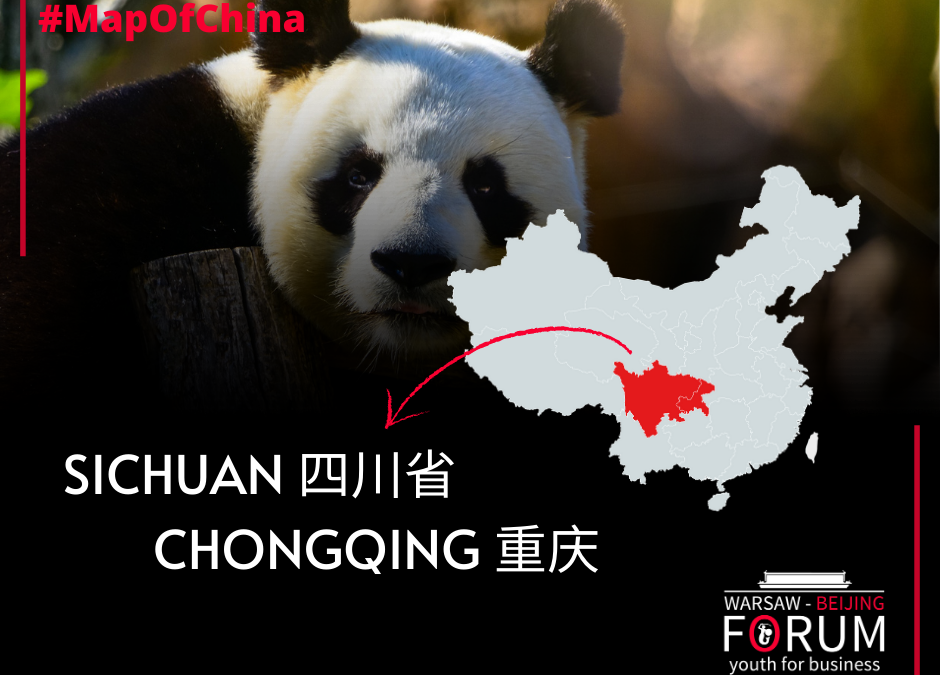 Sichuan (四川)
Sichuan (四川)
Region of unparalleled natural beauty and home of the giant panda
Land of many guises, Sichuan province, is situated in southwestern China. “What heights! / It is easier to climb Heaven / Than take the Sichuan Road” wrote the Tang poet Li Bai describing high mountains and steep gorges ringing Sichuan province. With landscape highly variable from the east to the west, it is one of the largest and the most densely populated provinces of China.
Sichuan has been known as land of abundance since ancient times. When it comes to the wildlife, the province is best known as the principal home of the giant panda, recognized as a “National Treasure” in China. Sichuan Giant Panda Sanctuaries, a UNESCO World Heritage site, consist of seven nature reserves and nine scenic parks in the Qionglai and Jiajin Mountains. Home to over 30 percent of the world’s giant pandas, the sanctuaries represent the largest contiguous panda habitat in the world. They are also a refuge to other globally endangered species such as the red panda, the snow leopard and clouded leopard.
Located in the hinterland of Chengdu Plain, Chengdu is Sichuan’s modern yet laid-back capital city. With a history of more than 3,100 years, it has always played an important role in the cultural and intellectual life of Sichuan. Chengdu is known for leisure and entertainment, the vibrant street food culture and it has a long tradition as China’s city of teahouses. In fact, teahouses are centres of neighbourhood social life and can be found in the city’s many parks and temples. The city is also an excellent place to witness a performance of a traditional Sichuan Opera and art of “face changing”.
Southwestern province of Sichuan is famous across the world for its distinctively hot and spicy cuisine. It’s the birthplace of mala hot pot, mapo tofu, spicy diced chicken (Kung Pao Chicken) and dan dan noodles. But Sichuan food is really about a variety of flavors – a local saying goes, “In Sichuan cuisine each dish has its own style, a hundred dishes have a hundred different flavors”.
- Capital City: Chengdu
- Local Time: GMT/UTC +8
- Website: http://www.sc.gov.cn/
 Chongqing 重庆
Chongqing 重庆
A unique city with a unique location
Chongqing is a city and provincial-level municipality in southwest-central China. It is directly under the central government’s control. The name of the city means “Double-Blessed”. Chongqing is also known as the Mountain City, mainly because it was built on steep hills sloping down to the confluence of the Yangzi and Jialing Rivers. Although it is commonly asserted Chongqing is the largest city in the world, it is not exactly true. Figures for the whole municipality’s population are made up of a number of towns and cities. The city of Chongqing itself has about eight million inhabitants, not 30 million. However, Chongqing City is one of the fastest-growing of China. Population of the city is growing by a couple of per cent every year. City is the main manufacturing and commercial centre of southwest- central China.
A great way of getting an alternative view of this unique metropolis is to go on a cruise. Some say that Chongqing looks best from the water. Hilly Chongqing is a unique city with a unique location – a region of fantastic natural beauty. When it comes to the climate it is mild and just as in Sichuan – intensely humid.
Chongqing is most famous for being the birthplace of spicy hot pot. The dish is not just a food, but a lifestyle. Hot pot restaurants in Chongqing are everywhere and because of that city is called ‘China’s hotpot city’. Another delicacy to try – Chongqing noodles. Collectively referred to as xiǎomiàn, are a variety of popular spicy and numbing noodle dishes originated from Chongqing.
- Local Time: GMT/UTC +8
- Website: http://cq.gov.cn/
Author: Krysia Bragiel


Recent Comments